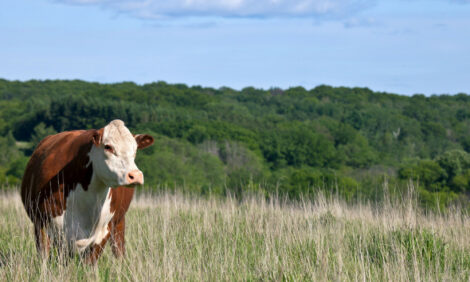



AFBF Calls for Strong Farm Safety Net, EPA Oversight
US - Delegates at the American Farm Bureau Federation’s 92nd Annual Meeting voted to maintain a strong farm income safety net, address dairy price volatility and urge greater oversight of regulatory actions by the Environmental Protection Agency.As Congress prepares to draft a new farm bill later this year and in 2012, the delegates reiterated their support for extending the concepts of the 2008 farm bill.
“The 2008 farm bill has worked as farmers and ranchers have weathered market ups and downs over the last four years,” said American Farm Bureau Federation President Bob Stallman.
“It’s important to maintain a program that protects our nation’s food, fiber and fuel supply and the consumers who rely on agriculture’s productivity.”
Farm program baseline funds should not be diverted outside the farm bill, the delegates said. The new farm bill should maintain a strong “safety net” that consists of direct payments, a simplified Average Crop Revenue Election (ACRE) program and the countercyclical, marketing loan and crop insurance programs. Overall, however, they adopted policy that provides flexibility to move forward with farm policy within the budget framework that will become clearer later this year.
A new direction in dairy policy is needed, according to the delegates, to reduce milk price volatility. Recent years have seen both historical but short-term highs and devastating longer-term lows in milk prices. A resolution approved by the delegates says, in essence, that the dairy price support and Milk Income Loss Contract programs have not performed adequately.
“We’ve seen extreme fluctuations in dairy prices, and in the last two years the dairy sector has had a tougher time than other sectors,” Mr Stallman explained.
“We can’t continue to do the same things and expect a different outcome. We need a change in our nation’s dairy policy.”
The delegates adopted new policy in support of a dairy risk management program that offers protection based on gross margins after subtracting feed costs. The delegates supported creating such a program in a fiscally responsible way by backing the use of all funding previously allocated to dairy price support and Milk Income Loss Contract programs to a new risk management program.
The new dairy policy allows for the consideration of a temporary supply management system, but it maintains AFBF’s opposition to a mandatory milk production quota system. The policy enables Farm Bureau to work with the dairy industry to develop solutions for excessive price fluctuations.
The delegates approved a resolution calling for more congressional oversight of the Environmental Protection Agency’s regulatory actions. They asked Congress to assess the impact that EPA regulations would have on agriculture and to consider legislation to stop EPA’s regulation of greenhouse gases.
“EPA’s regulatory reach continues to metastasize at the expense of our ability to produce food, fiber and fuel, and EPA often does not recognize the contributions that farmers and ranchers have made to reduce soil loss and produce more with less land, water, nutrients and other inputs,” said Mr Stallman.
“We need more common sense and less negativity toward production agriculture in the enforcement of the nation’s existing environmental statutes.”
AFBF announced on 10 January, during the annual meeting, that it was filing a federal lawsuit to halt the EPA’s Chesapeake Bay pollution regulatory plan. AFBF said that the agency overreached by setting up a plan for the entire 64,000 square-mile Chesapeake watershed, usurped state control, relied on faulty data and failed to account for agriculture’s contributions to improving water quality, and provided insufficient information and time for the public to check EPA’s actions.
The delegates also reaffirmed support for establishing a guest worker program that meets agriculture’s need for farm labor, fair and open world trade and continued inclusion of the word “navigable” in the Clean Water Act’s definition of the water bodies that are subject to federal regulatory jurisdiction.
The American Farm Bureau Federation is the nation’s largest general farm organization. At its 92nd Annual Meeting, 370 voting delegates representing every state and agricultural commodity deliberated on policies affecting farmers’ and ranchers’ productivity and profitability. The approved policies will guide the organization’s work throughout 2011.
Farm Bureau Elects Grassroots Leaders
The delegates elected four state Farm Bureau presidents to the AFBF board of directors: Blake Hurst of Missouri for the Midwest region; Pat Langenfelder of Maryland for the Northeast region; Randy Knight of Mississippi for the Southern region; and Paul Wenger of California for the Western region.
Fourteen other state Farm Bureau presidents were re-elected to represent their regions on the AFBF board of directors:
- Midwest region – Craig Lang, Iowa, Keith Olsen, Nebraska, Don Villwock, Indiana, and Wayne Wood, Michigan. Northeast region – Dean Norton, New York, and Carl Shaffer, Pennsylvania. Southern region – Ronnie Anderson, Louisiana, Kenneth Dierschke, Texas, Zippy Duval, Georgia, Mike Spradling, Oklahoma, Lacy Upchurch, Tennessee, and Larry Wooten, North Carolina. Western region – Perry Livingston, Wyoming, and Michael White, New Mexico.
Ben LaCross, a Michigan grower of cherries, plums and apples, was elected the new chairman of the Young Farmers & Ranchers Committee. He also will sit on the AFBF board of directors during his one-year term, which begins in February.
Terry Gilbert, a corn and cattle producer from Kentucky, and Sherry Saylor, a cotton producer from Arizona, were re-elected as chair and vice-chair of the Women’s Leadership Committee for two-year terms. Gilbert also will continue as a member of the AFBF board of directors. The committee re-nominated and the AFBF delegate body re-elected Helen Norris of Kansas, Ginny Paarlberg of Florida, Ethel Nash of West Virginia and Angela Ryden of Colorado to the committee for two-year terms.
TheCattleSite News Desk


